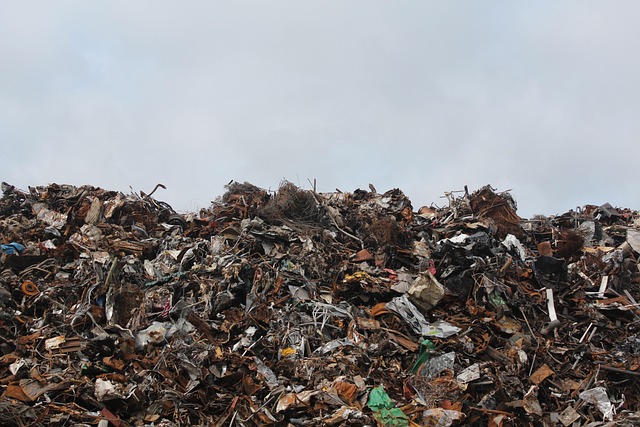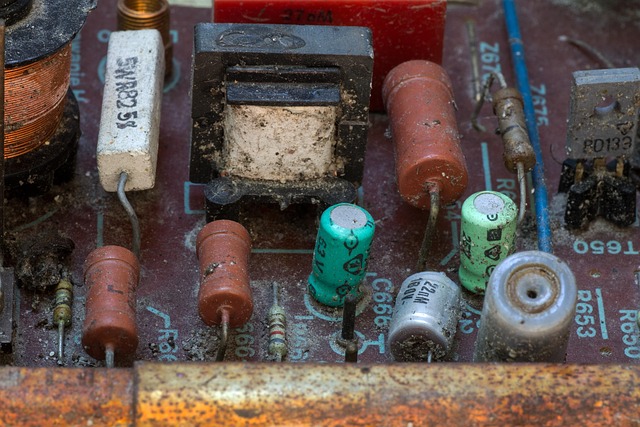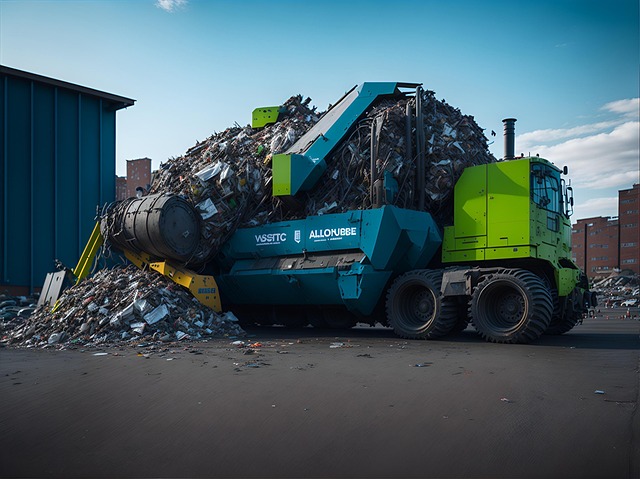Revolutionizing Manhattan’s E-Waste: Responsible Recycling Strategies

Manhattan faces challenges managing rapidly growing electronic waste due to high IT asset generation rates and diverse landscape. Effective commercial…….
In the heart of New York City, among the towering skyscrapers and bustling streets, lies a silent but vital movement—Manhattan’s commercial e-waste recycling ecosystem. This article aims to delve into the intricate world of electronic waste (e-waste) management within the city, exploring its significance, processes, and impact on both local communities and the global environment. By understanding the dynamics of commercial e-waste recycling in Manhattan, we can appreciate its role as a sustainable solution and a potential game-changer in the fight against technological pollution.
Definition: Commercial e-waste recycling refers to the organized collection, processing, and repurposing of electronic waste generated by businesses, organizations, and institutions. In Manhattan, this includes a diverse range of entities from tech startups to large corporations, all contributing to the city’s unique e-waste management landscape.
Core Components:
Historical Context: Manhattan’s approach to commercial e-waste recycling has evolved over time. Early efforts focused on ad-hoc recycling initiatives by local businesses and non-profit organizations. However, with the increasing volume of electronic devices in circulation and the recognition of e-waste as a complex global issue, structured programs emerged. Today, Manhattan boasts several reputable e-waste recycling centers and partnerships between businesses and environmental groups to address this growing concern.
International Influence: The practices and policies surrounding commercial e-waste recycling in Manhattan reflect global trends and concerns. International agreements like the Basel Convention aim to control the transboundary movement of hazardous waste, including e-waste, ensuring responsible management across borders.
Regional Variations: Different regions worldwide have unique challenges and opportunities in e-waste recycling:
| Region | Challenges | Opportunities |
|---|---|---|
| North America | Strict regulations and high disposal costs | Well-established recycling infrastructure and strong consumer awareness |
| Europe | Comprehensive legislation and robust recycling rates | Leading technology in e-waste processing and a circular economy focus |
| Asia | Rapidly growing e-waste generation and informal recycling practices | Huge potential for formalization and technological innovation |
| Africa | Limited infrastructure and awareness, but rich mineral resources | Emerging market for responsible e-waste management and resource recovery |
Global Trends:
Market Dynamics: The commercial e-waste recycling market in Manhattan, like elsewhere, operates with various stakeholders:
Investment Patterns:
Economic Impact:
Innovation in E-Waste Recycling: Technological breakthroughs have significantly improved the efficiency and effectiveness of commercial e-waste recycling:
Future Potential: Emerging technologies like artificial intelligence (AI), blockchain, and advanced robotics hold promise for further revolutionizing the recycling process:
Governing Frameworks: The regulatory landscape surrounding commercial e-waste recycling is crucial for its successful implementation:
Key Policies:
Main Issues:
Proposed Solutions:
Case 1: Manhattan’s Green Tech Initiative
Manhattan’s Department of Parks and Recreation launched a pioneering e-waste recycling program called “Green Tech.” This initiative aimed to engage the community and provide easy access to e-waste disposal events. By partnering with local tech companies, they organized regular collection drives at parks and community centers, offering free recycling services for all residents. The program’s success led to increased participation rates and inspired similar initiatives across the city.
Case 2: Eco-Friendly Tech Corporation (EFT)
EFT is a leading electronics manufacturer based in Manhattan that has made significant strides in sustainable practices. They implemented an extensive take-back program, allowing consumers to return old devices for recycling or refurbishment. EFT’s state-of-the-art recycling facility employs advanced sorting technology and chemical extraction processes, ensuring high recovery rates of precious metals. Their commitment to responsible manufacturing and recycling has set a benchmark for the industry.
Case 3: The Cyber Recycling Alliance (TRA)
TRA is a non-profit organization dedicated to promoting e-waste recycling in Manhattan’s tech community. They collaborate with local startups and established tech giants, organizing workshops and awareness campaigns. TRA’s “Tech Trade-In” program offers businesses a platform to collect and recycle old devices from customers, encouraging responsible disposal through incentives and partnerships. This collaborative approach has fostered a culture of sustainability within the city’s tech sector.
Emerging Trends:
Strategic Considerations:
Commercial e-waste recycling in Manhattan is a dynamic and essential component of the city’s environmental stewardship and economic growth. By understanding its historical context, global impact, technological advancements, and policy frameworks, we recognize its importance as a sustainable solution to a growing global challenge. The case studies presented illustrate successful strategies that can inspire further innovation and collaboration. As technology evolves and policies adapt, Manhattan’s e-waste recycling ecosystem is poised to lead the way in creating a more circular and environmentally conscious future.
Q: How does Manhattan handle the disposal of hazardous substances found in e-waste?
A: Manhattan’s recycling centers adhere to strict environmental regulations, employing safe handling procedures for hazardous materials. These include proper packaging, transportation, and disposal methods as per EPA guidelines.
Q: Can individuals drop off their old electronics for recycling at various locations?
A: Absolutely! Many businesses in Manhattan offer e-waste drop-off points, including electronic stores, libraries, and community centers. Local initiatives also organize collection events where residents can bring their old devices for responsible disposal.
Q: What are the benefits of EPR (Extended Producer Responsibility) policies for e-waste recycling?
A: EPR places responsibility on manufacturers for the entire lifecycle of their products, encouraging them to design for longevity and easy recycling. This leads to better resource recovery, reduced environmental impact, and enhanced consumer trust.
Q: How can businesses encourage employees to participate in e-waste recycling initiatives?
A: Businesses can implement educational programs, provide incentives like recycling rewards, and incorporate sustainable practices into company culture. Involving employees in decision-making processes related to e-waste management can foster a sense of accountability.
Q: What role does technology play in improving the efficiency of e-waste recycling?
A: Technology, such as advanced sorting systems, automated shredding, and chemical extraction processes, significantly boosts recycling efficiency, reduces labor costs, and improves material recovery rates. Emerging AI and robotics applications promise further enhancements.

Manhattan faces challenges managing rapidly growing electronic waste due to high IT asset generation rates and diverse landscape. Effective commercial…….

Manhattan's robust commercial e-waste recycling infrastructure promotes sustainable city living by efficiently managing electronic waste from res…….

Manhattan's business sector generates significant e-waste, but specialized commercial recycling centers offer sustainable IT solutions. These pro…….

Manhattan's thriving tech scene generates significant e-waste, underscoring the need for effective management. The city offers numerous solutions…….

Manhattan's dense population and tech-driven culture generate substantial commercial e-waste, but specialized recycling facilities offer sustaina…….

Manhattan's vibrant startup scene generates significant e-waste due to rapid tech advancements. Efficient commercial e-waste recycling programs o…….

Manhattan's growing e-waste problem necessitates active participation in commercial e-waste recycling to meet environmental standards and reduce…….

Manhattan offers diverse, top-tier commercial e-waste recycling centers with e-Steward certification for secure data destruction and industry standard…….

Managing e-waste responsibly in Manhattan is crucial due to limited landfill space and growing electronic waste volume. Commercial recycling centers p…….

Manhattan's commercial e-waste recycling initiatives address rapid IT asset turnover and associated electronic waste. Robust programs provide acc…….